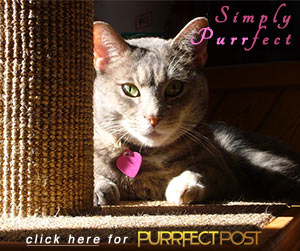Why Do Some Cats Chew Plastic?

It's a more prevalent issue than you might think—many cats seem to have a strange desire to chew on or even eat plastic bags. Let's discover the main reasons cats engage in this behavior and what you can do to stop it.
Eating Plastic Is a Form of Pica
Pica is the behavior of ingesting or chewing on non-food items. Pica, and thus, plastic-chewing, can have a few different causes:
- Stress. Cats become stressed for many various reasons, and it can lead to unwanted behaviors like inappropriate urination and scratching inappropriate items. It can also cause over-grooming and pica. Think of it as being similar to a person chewing their nails due to anxiety. Some of the common causes of stress in cats include:
- Not enough playtime.
- Conflict with other pets or people in the home.
- Not enough access to resources like food and scratching posts because of feline housemates.
- Storms or other loud events like parties.
- Remodeling or reorganizing of the home.
- Change in schedule of primary caretaker.
- Obsessive-compulsive disorder. This is an extreme consequence of stress in cats. It's when the kitty begins to engage in certain behaviors to the exclusion of normal ones. Plastic-eating can become OCD behavior.
- Predatory urges. Something about the rustling plastic and the way it feels when a cat chews or licks it may remind the kitty's brain of catching and eating prey.
- Nutritional deficiencies. This is rare, but some extreme dietary deficiencies can result in pica in cats. Not only is this rare, but it also doesn't usually cause a cat to seek out one particular type of non-food item like plastic.
- Other medical conditions. Some medical conditions can cause pica (again, usually not restricted to only plastic-eating). These include:
- Diabetes mellitus.
- Hyperthyroidism.
-
Brain tumor.
- Dental disease.
- Gastrointestinal disease.
- Anemia.
- Curious nature. Cats are notoriously curious and will often explore the world by licking or chewing on things, especially in the case of kittens. Sometimes, cats just lick and chew on plastic because they find it fun to do so.
How to Stop Plastic-Eating in Cats
Eating plastic is dangerous for cats. It can cause choking, suffocation, strangling, or life-threatening intestinal obstruction. Here are some things to do if your cat engages in licking, chewing on, and eating plastic:
- Visit the vet. The first thing you should always do when your cat is exhibiting an abnormal behavior is to visit the veterinarian for a full exam and potentially some lab work.
- Increase playtime. Since stress and boredom can both cause pica, make sure your kitty is getting enough interactive play time. That means play sessions with you, where you use a wand toy to mimic the behavior of a cat's natural prey—rodents and birds.
- Use puzzle toys. When you're not home, you can provide enrichment and combat stress and boredom in your cat by using puzzle toys that require the kitty to work to get some kibble out. You can try automatic cat toys that come on at intervals. You may also break up your cat's daily kibble allotment into smaller servings and hide it around the house to be "hunted" throughout the day.
- Provide lots of scratching posts. Scratching relieves stress for cats and helps decrease unwanted behaviors connected with it.
- Behavior modification. You can work on training your cat to leave plastic bags alone. Do this by being close to your kitty and putting out a plastic bag. When she heads toward it, distract her by tossing a cat toy in a different direction. When she chases the toy, give her big praise and a treat. Over time and many repetitions, you can teach your kitty that it's more rewarding to leave plastic alone than to lick or chew on it.
- Be diligent in keeping plastic away from your cat. Remember, eating plastic is hazardous to your cat's health, so make it a habit for you and everyone in your home to keep it out of reach of your plastic-loving kitty.
Disclaimer: This website is not intended to replace professional consultation, diagnosis, or treatment by a licensed veterinarian. If you require any veterinary related advice, contact your veterinarian promptly. Information at CatScratching.com is exclusively of a general reference nature. Do not disregard veterinary advice or delay treatment as a result of accessing information at this site.


